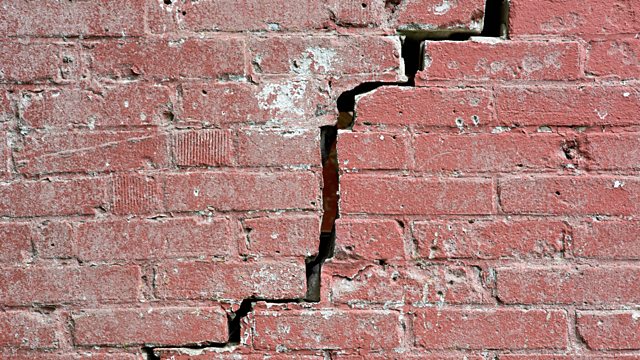Subsidence, Shop rents, Flushable wipes
Cracks in the wall and garden - the homeowners paying a high price for the hot, dry summer, and the shops saying that rents need to fall if they are to survive on the high street.
Βι¶ΉΤΌΕΔ insurers are predicting that 2018 could be the worst year for subsidence claims in a quarter of a century. It's being put down to the hot summer weather which dries out bricks and mortar. It happened in 1976, when 20,000 claims were made. A ground engineering company tells us that they have seen a 400% increase in enquiries about subsidence. Cracks in your walls and garden can be expensive to fix and drive up the cost of insurance. They can also make your home harder to sell. We hear about the tell-tale signs of subsidence, the potential cures and the likely costs.
Some of Britain's biggest retailers are trying to persuade their landlords to reduce their rent. A "perfect storm" of online competition, rising staff costs and fewer customers has made it hard for some shops to survive and thousands have closed in recent years. As it becomes harder to make a living on the high street, retail rents in many places are now falling. The new owner of House of Fraser is in talks with the company's landlords, but who has the upper hand in these negotiations, the shops or the landlords? And can small retailers also demand lower rents?
For years, parents have been told not to flush baby wipes down the toilet, with a warning that they don't decompose and can clog up drains and sewers. Some "flushable" wipes are available, but research carried out by Middlesex University suggests that some of them contain plastic fibres. One of Britain's biggest drain clearance companies tells us that even flushable wipes can cause blockages and other damage. They are advising that all wipes should go in the bin, and not down the toilet.
Producer: Jonathan Hallewell
Presenter: Winifred Robinson.



